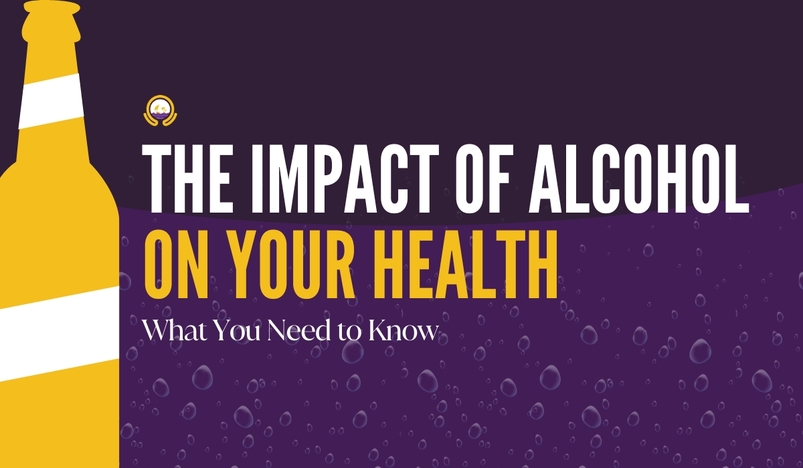
Ah, alcohol! The social lubricant that’s been the life of many parties and the comfort for many quiet evenings. Whether it’s a glass of wine with dinner, a celebratory toast, or a cold beer on a summer day, alcohol has woven itself into the fabric of our lives.
But have you ever stopped to wonder what’s really going on inside your body with each sip?
You know that tipsy feeling when the world seems a little softer around the edges? That’s alcohol taking a shortcut to your brain, specifically targeting neurotransmitters responsible for mood, behaviour, and motor skills.
At first, you may feel relaxed and even euphoric, but as you drink more, alcohol begins to suppress brain activity, slowing your reaction times and muddling your thoughts. Long-term use can lead to memory issues and cognitive decline, turning that fun night out into a lifetime of foggy thinking.
You’ve probably heard that a glass of red wine is good for the heart. While there’s some truth to that (thank you, antioxidants), the benefits only apply to light or moderate drinking.
Heavy drinking, however, tells a different story. It raises blood pressure, increases the risk of stroke, and weakens heart muscles, potentially leading to heart failure. In short, your heart isn’t as big a fan of your cocktail habit as you might think.
The liver is your body’s detox champ, working overtime to process the alcohol you consume. But it’s not invincible. Alcohol taxes the liver, causing inflammation and damage over time. Fatty liver disease, hepatitis, and cirrhosis can all result from overconsumption. Picture your liver as a diligent employee, too much workload, and it starts to burn out.
You might not associate alcohol with gut health, but the two are closely linked. Alcohol irritates the lining of your stomach and intestines, potentially causing gastritis or ulcers. It can also interfere with the balance of good bacteria in your gut, leading to digestive issues and discomfort. Not so glamorous, is it?
While a drink might seem like the perfect way to unwind after a stressful day, alcohol and mental health have a complicated relationship. Alcohol is a depressant, and frequent consumption can exacerbate anxiety and depression over time. What starts as a stress reliever can turn into a coping mechanism, trapping you in a cycle of negative emotions.
Alcohol may help you fall asleep faster, but it doesn’t lead to restful, restorative sleep. It disrupts your sleep cycle, particularly the important REM stage, leaving you groggy and tired the next day. Over time, alcohol-induced sleep disturbances can wreak havoc on your energy levels and overall well-being.
Here’s a lesser-known fact: alcohol consumption is linked to several types of cancer, including mouth, throat, liver, and breast cancer. The risk increases with the amount consumed, so even moderate drinking can add to your cancer risk over time. It's not just the liver that pays the price for chronic drinking.
The key, as with many things in life, is moderation. Health experts suggest no more than one drink per day for women and two for men. But remember, alcohol affects everyone differently, and factors like age, genetics, and overall health can influence how your body processes it.
Alcohol can be a pleasant part of life when enjoyed responsibly, but it’s important to understand the potential long-term impacts. Your body is an intricate system, and while it’s resilient, it has its limits.
So next time you reach for that glass, take a moment to consider what’s happening beneath the surface. Balance and moderation are your best friends when it comes to alcohol and your health.
In the end, your body will thank you, and maybe even reward you with a clearer mind, a healthier heart, and a brighter future. Cheers to that!
.jpg)
Qatar Secures Place Among the World's Top 10 Wealthiest Nations
.jpg)
Hamad International Airport Witnesses Record Increase in Passenger Traffic

Saudi Arabia: Any visa holder can now perform Umrah

What are Qatar's Labour Laws on Annual Leave?
Leave a comment